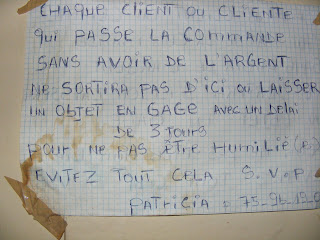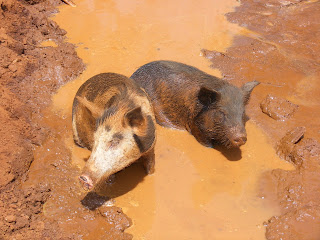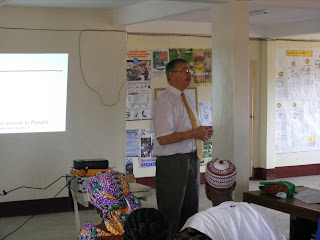






















My eight weeks and five days here are running out at great speed. The end is nigh!
I’ve mentioned before on this blog that I’ve met many interesting people during my time in Cameroon. These include Africans and non-Africans. I’ve been particularly impressed by two Austrian ladies, Gerda Themel and Bettina Leidl, whose small organisation Women's Cooperation International is making an important contribution to the education and training of girls and women. You can see something about that organisation (in German) at http://www.womenscooperation.at/index2.htm
Here are a couple of paragraphs about them.
"Poverty is female - in the rich industrial nations, but particularly in the poor countries in the world. According to experts' estimations more than one billion people live in poverty, 70% of them are women.
We at "Women's Cooperation International" think that "if we are so well-off in the rich countries, why don't we try to give some of it to others...? Why don't we try to strengthen women in the so-called Third World?" The principle is help towards self-help. In Sri Lanka it began in 2004... and it is continuing. In terms of international women's solidarity for the women in distant countries who are not so well-off."
I’ve been able to see first-hand some of the results of their practical interventions in the Bali area. They don’t give money, but after consultation with the women themselves, they do pay, for example, for adult literacy and numeracy classes, and for exercise books and pens, and for equipment needed by the women for their subsistence farming. Their work is really practical and inspiring.
It was with Gerda and Bettina that I went back to both Mankon and Bafut. Going back to a place previously visited after a gap of a few weeks was worth doing. Firstly, we were able to meet the Fon in Mankom – he had not been there on the previous occasion. the Fon boasted of having met the Queen ...
The pictures here, from top to bottom, show:



























